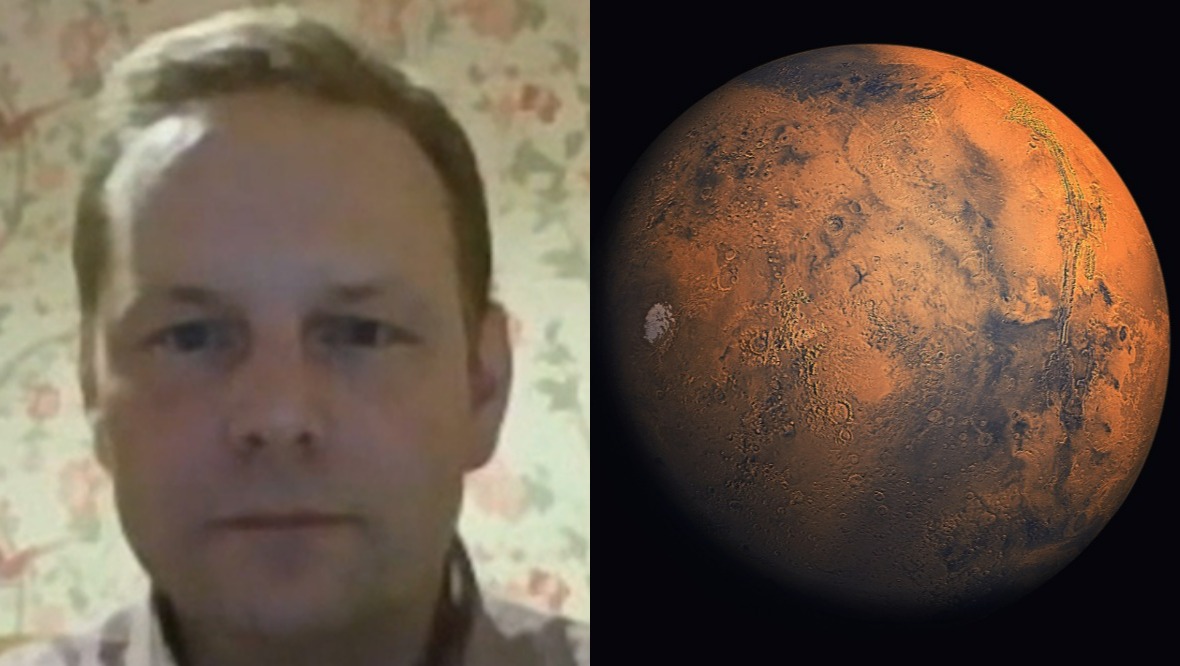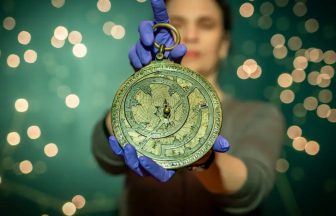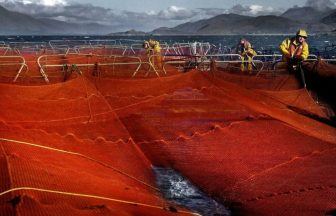Is there life on Mars? It’s a question that has long fascinated not just David Bowie, but the rest of us down here on Earth.
The search for answers is ongoing and at the heart of that quest is Stirling University academic Dr Christian Schroeder.
Dr Schroeder has been chosen to join the team piloting the European Space Agency’s Mars Rover, which launches later this year.
He told Scotland Tonight how the search will work and what he expects to find.
Q: Christian, what is your role in this mission?
A: I will be part of the science team who’s directing the Rover to locations where it can investigate and start drilling.
How does it work – is there a team with a gearstick like a video game?
No, unfortunately not. Mars is too far away so we can’t direct it in real time. A signal to Mars can take anywhere between a few minutes to 45 minutes.
We have to beam up the day’s tasks and the Rover will execute that list the next day and send back its data, which we analyse and then compile the next task list.
Tell us about the terrain and the atmosphere on Mars
Mars is known as the Red Planet and that’s reflected in the material we see on the surface of its land and the stones and so on. All of it will come with a red tinge, even the atmosphere during the day, and there’s a reddish sky. Funnily enough, the sky turns blue at sunset on Mars and it’s the opposite way on Earth.
What are you looking for?
The main goals of this mission are to search for signs of past or present life on Mars. And in that purpose, to investigate below the surface up to two metres deep and look for traces of water and how that affects the surface material.
You’re hoping to build on what the previous Rovers have discovered before – is this going to be a more sophisticated mission?
We are building on what previous missions have found in the sense that we now know there was liquid water on Mars in the past, and that we think Mars was habitable, so microbial life could have survived there.
The unique selling point of this Rover is it can drill up to two metres below the surface. That’s much further than any Rover before, where we had maybe a few centimetres.
When you’re talking about life on Mars, it’s not little green men?
Yes, when we talk about life on Mars, we talk about microbial life. We don’t expect to find intelligent lifeforms, no War of the Worlds or anything like that.
Does it matter what you discover on Mars – why should it matter to us back down here on Earth?
We don’t know whether there’s life on Mars or anywhere else in our solar system, but the way we think life originated on Earth, it’s plausible that it could have originated on Mars as well. This is a good test case to see how far we understand our own origins.
If we find anything on Mars that could resemble life, it could tell us whether there is a shared origin of life through our solar system. But there might also be a separate origin, and if you see a separate origin, two planets in one solar system, there might be quite a lot of life in the rest of the universe.
Do you think humans will ever live on Mars, or is that just the stuff of science fiction?
Personally, I wouldn’t necessarily want to live on Mars. I think Earth is a much nicer planet and we should do our utmost to protect it, but there are plans from several space agencies to send humans to the red planet. And you know, there are private entrepreneurs who want to settle on Mars. So this is not science fiction. This is something I think will happen. How soon is another question.
Follow STV News on WhatsApp
Scan the QR code on your mobile device for all the latest news from around the country




























